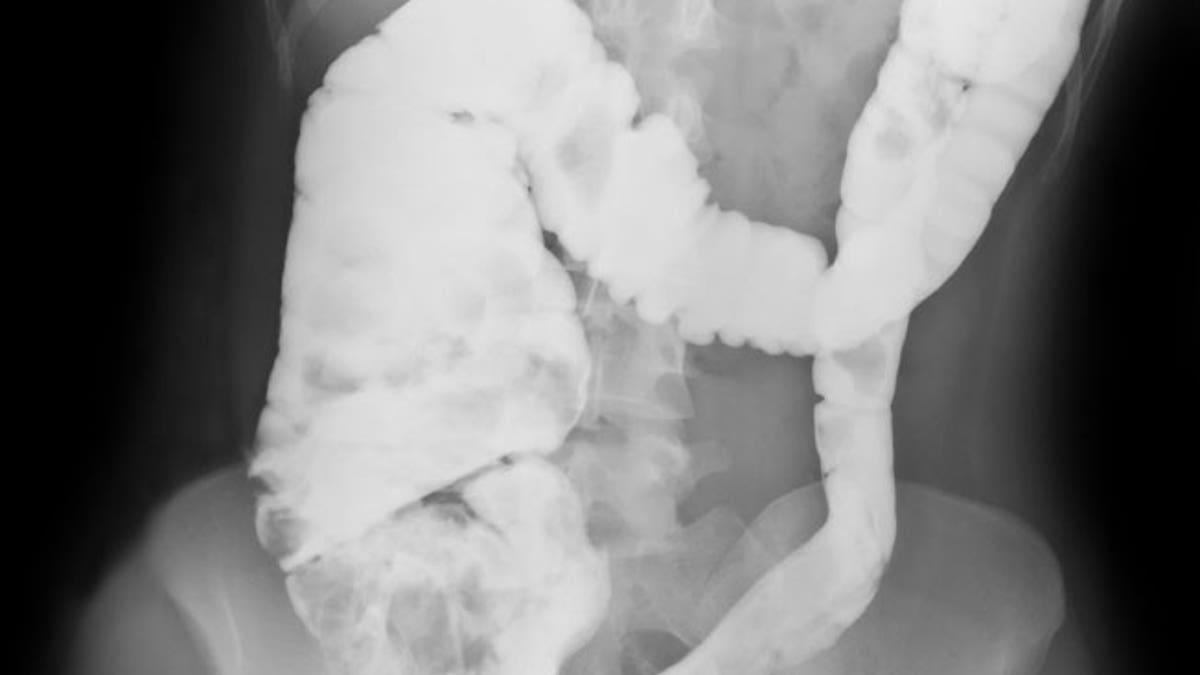
Friday: 9:40am ET: Crohn’s and Colitis Special programming hosted by Rick Folbaum. Guests GI Doctor James Marion and the Executive Director Rhondell Domilici from the Crohn's & Colitis Foundation of America will take your questions in the live chat. Catch it all at http://live.foxnews.com
Crohn’s disease affects over half a million Americans of all ages, according to the Crohn’s & Colitis Foundation of America (CCFA). Classified as an inflammatory bowel disease (IBD), Crohn’s causes swelling and inflammation in the lining of your digestive tract, typically resulting in abdominal pain and diarrhea. While the cause is unknown and no cure is available, ongoing treatment can help alleviate the symptoms of Crohn’s disease and prevent life-threatening complications, such as severe malnutrition.
Overview
Crohn’s disease is a painful chronic condition that usually affects the end of your small intestine and the beginning of your large intestine, commonly known as the colon. The walls of the small and large intestines are formed by layers of overlapping tissues. Ulcerative colitis, an inflammatory bowel disease similar to Crohn’s disease, affects only the top layer of your colon. Crohn’s disease, on the other hand, is found in the deep layers of tissue in the colon and part of the small intestine known as the ileum. The deep-rooted inflammation causes uncomfortable and sometimes debilitating symptoms that can pose great challenges.
Types
There are different types of Crohn’s disease based on where the inflammation is in the gastrointestinal tract. Ileocolitis is found in the ileum and colon, and ileitis is only present in the ileum. While ileitis and ileocolitis account for most cases of Crohn’s disease, the illness can be found in other parts of the body. Gastroduodenal Crohn’s disease occurs in the stomach and beginning of the small intestine (duodenum). Jejunoileitis is characterized by patches of inflammation in the upper half of the small intestine (jejunum). Crohn’s colitis affects only the colons. Diagnosing any form of Crohn’s disease is often difficult because of its similarity to irritable bowel syndrome and ulcerative colitis, according to the U.S. Department of Health and Human Services.
Symptoms
The most common symptoms of Crohn’s include abdominal pain, cramping and diarrhea. You might also find blood in your stool because the inflamed tissue in your digestive tract is prone to bleeding. Persistent bleeding can lead to anemia, a condition in which your body lacks the essential nutrient iron. Small sores on the surface of your intestine may develop into painful ulcers. Additional symptoms can include: reduced appetite and weight loss, fever, arthritis or eye inflammation.
Cause
The ultimate cause for Crohn’s disease remains unknown. One popular hypothesis suggests that the disease may result from an abnormality within the immune system. A normally functioning immune system senses foreign and potentially harmful substances that enter the body, attacking these invaders to prevent and fight disease. In people with Crohn’s disease, the immune system mistakes natural bacteria and food for dangerous visitors. White blood cells from the immune system then build up in the intestinal walls, which leads to ongoing inflammation.
Treatment
While there is no cure for Crohn’s disease, medical intervention can help you manage your symptoms and assuage the inflammation, according to the Mayo Clinic. Anti-inflammatory drugs may help mitigate the swelling in your intestines. Immune system suppressors and antibiotics may also alleviate the inflammation by addressing the malfunctioning immune response that may be causing the disease. Day-to-day symptoms may be relieved through a combination of pain relievers, antidiarrheals or laxatives.
In some cases, a doctor will recommend surgery to remove a particularly damaged part of the intestine. Surgery can ease severe symptoms, including infections or excess bleeding. A few patients may require complete removal of their intestines. Lifestyle changes may help as well. A stress-free lifestyle can help avoid aggravating your digestive system, and a healthy diet ensures that your body receives necessary nutrients.
